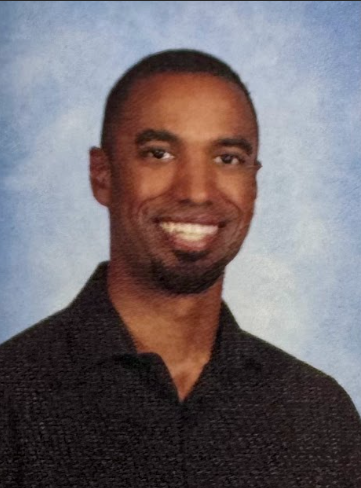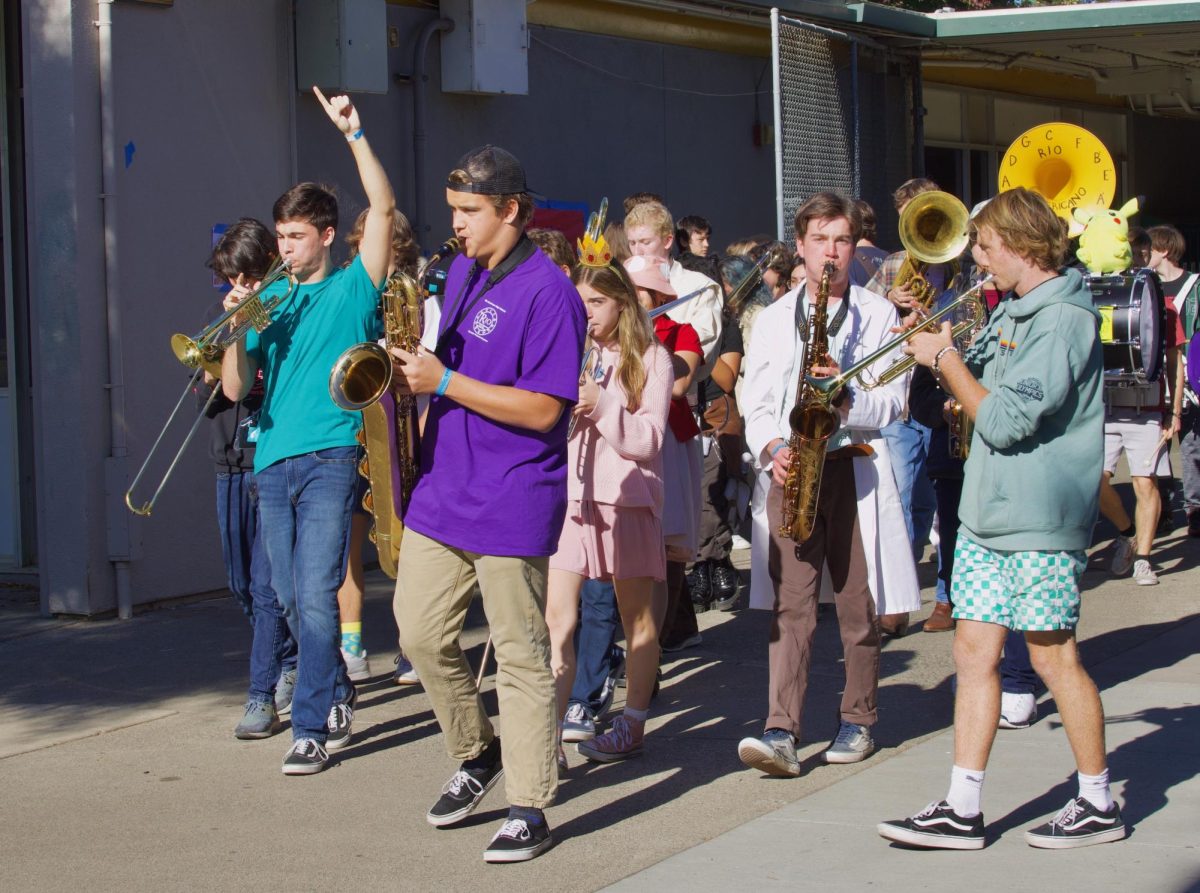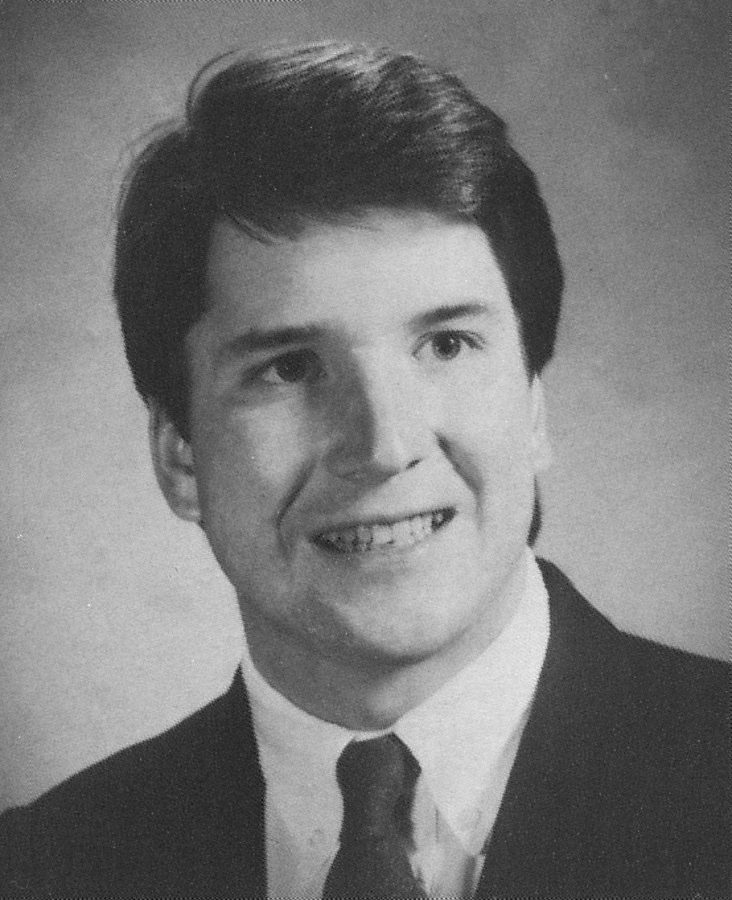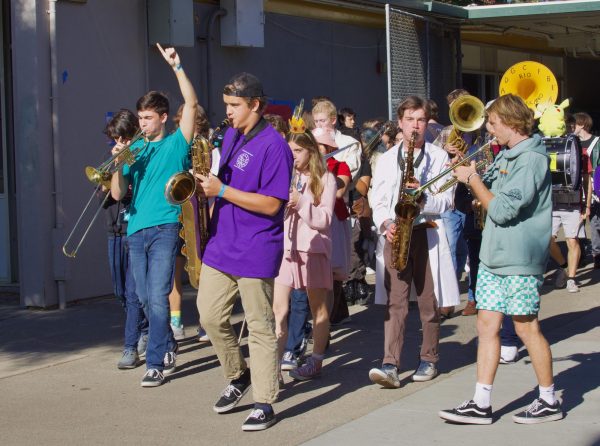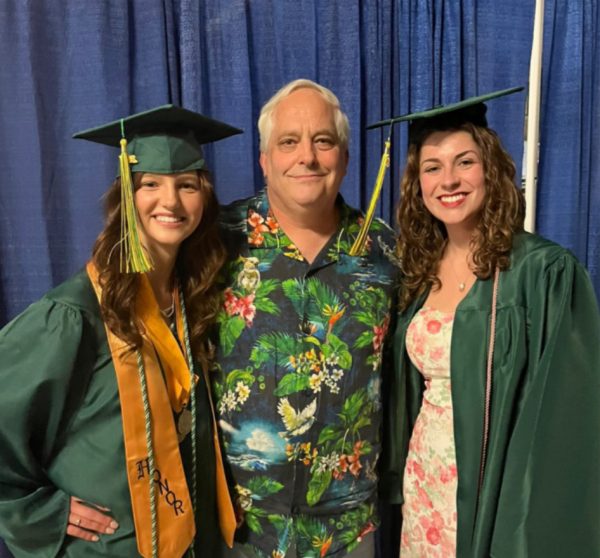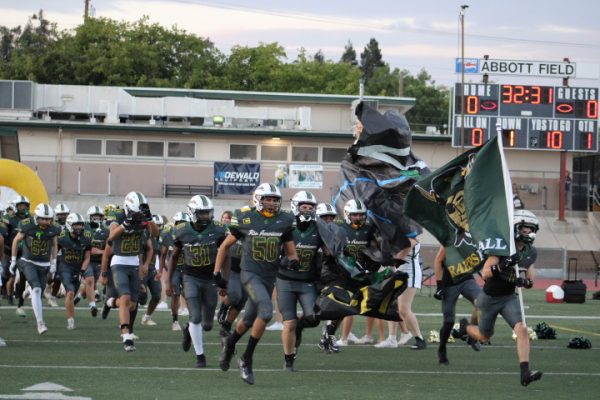Teens respond to Kavanaugh hearings
Brett Kavanaugh was nominated to become a Supreme Court justice, but an act he allegedly committed in high school is prolonging his confirmation.
Doctor Christine Blasey Ford testified Sept. 27 at Kavanaugh’s hearing and answered questions posed by senators and prosecutor Rachel Mitchell about the party Kavanaugh allegedly sexually assaulted her at.
Although teenagers are unable to vote, this hearing sparked interest in younger populations, and brought awareness as to how their actions now can impact their future.
“The Kavanaugh hearing has taught me that what I do as a teenager and in high school can affect me later on in life and it’s important to be the best version of yourself at all time,” said senior Victoria Salazar.
Ford’s story has allowed teens to reflect on what they would do if they were in a similar situation.
“The hearings have made me much more aware of the stereotypical frat party culture,” said senior Ben Baker. “If I ever saw a drunk guy at a party harassing a girl, I’d be sure to help the girl and stop the situation, as I hope anyone at Rio would do.”
The issue of whether or not Kavanaugh should be confirmed has become republicans versus democrats, rather than deciding who is telling the truth. Republicans are tending to side with Kavanaugh despite their beliefs because they want someone of similar affiliation on the Supreme Court.
This is frustrating to some feminists who hoped this would be a chance for senators to redeem themselves from when Clarence Thomas was confirmed after Anita Hill came forward.
“As a feminist, the Kavanaugh hearing is important to me because I believe that everyone, male and female, should be confronted for their actions and brought to justice,” said senior Chase Iseley. “I’m tired of people getting away with something as horrendous as sexual assault because of their power.”
This process has been a true test of democracy and is demonstrating to teens how the government has evolved since Anita Hill.
“It is the ultimate test to see if our country has grown since the Clarence Thomas case with Anita Hill,” said Salazar. “Sexual assault is a lot more common than it is talked about openly and it’s not a subject that should be taken lightly no matter how much time has passed.”
Salazar added that the results of this hearing will be “a clear example of how serious our country takes sexual assault as an act of injustice.”
Arguments to defend Kavanaugh have included: “boys will be boys” or that all teenage boys commit something like this, so they shouldn’t be blamed or that he was 17 and shouldn’t have his life ruined because of this. These justifications all relate to teenage boys being incapable of controlling themselves or being too immature to know better.
“If you read the story, it was sexual assault, not two drunk people making a bad choice; it was pure sexual assault,” said junior Peter Poirier. “He put his hand over her mouth so nobody could hear her scream. That is not something that every boy does when they’re growing up. That is far far past anything that is normal.”
Students are refuting the argument that all young men do something similar to Kavanaugh.
“Not all teenage boys are sexual harassers,” said Baker. “There are tons of teenage boys who know right from wrong, but there are also the stereotypical frat guys who turn out to be like Kavanaugh. I think it’s great strong women, like Dr. Ford, are speaking out about this and sharing their painful experiences and hopefully this will educate young or teenage boys and can help them grow up to be respectful, accountable men.”
Ford has become a symbol for the Me Too movement, a movement started to create awareness about sexual assault. She spoke at the hearing saying she “didn’t want to be there, but she felt it was her civic duty.”
“I think Ford’s testimony will help unite women as a force to be reckoned with and will strengthen the Me Too movement,” said Iseley.
Senior Katherine London is unsure whether Ford’s testimony will change the perspective of people that already ignore the Me Too movement.
“I would hope this hearing changes the way women are treated in society,” said London. “To me it’s sad that a woman can stand up in front of a room of people and no one will believe her. The Me Too movement has given so many women the courage to stand up and tell their stories, yet some men in society still refuse to listen.”
Some students feel that Ford speaking sent a message not of empowerment, but rather one of abuse of power.
“Ford’s testimony will definitely change how women, especially those who have been sexually assaulted, are viewed in society,” said senior Shay Mellor. “Sadly, I think the case shows how untrustworthy our government is by exploiting her when she asked to remain anonymous.”
Kavanaugh is a conservative who was nominated by a republican president. For this reason and the fact that republicans have majority in the senate, many students agreed it didn’t matter whether Ford is believed or not, Kavanaugh would be confirmed.
“Despite the backlash and controversy, I think that Ford is brave, and hearing the pain in her voice as she retold her worst nightmare made me absolutely believe that Kavanaugh sexually assaulted her,” said Iseley. “I think Kavanaugh genuinely believes he didn’t assault Ford which makes him that much more disgusting of a man. Unfortunately, I think he will still be confirmed due to the lack of corroboration in the he said, she said circumstances.”
Students questioned Kavanaugh’s credibility as a judge following these allegations.
“It’s sad that a president who was elected even after being accused of sexual assault can appoint a man who supposedly assaulted a woman,” said London. “If elected, Kavanaugh’s job would be to make decisions on important matters including cases like his or Roe v. Wade, so how can we trust him to make the right choices?”
Mellor predicts a shift in the way future nominations will be conducted saying that, “future Supreme Court appointments will likely play out based on political party rather than merit.”
Although this is a job interview, not a trial, Mellor believes politicians and the public jumped the gun when it came to forming a conclusion, and the rule that everyone is innocent until proven guilty should still apply.
Iseley hopes this hearing will provide valuable lessons to both teenage boys and girls.
“I think that as more women come forward and share their stories, teenage boys will begin to understand that they can, should, and will be held accountable for their actions even if it is years later,” said Iseley. “I’m not saying that men should fear women, but I do believe that they should fear the repercussions of sexually assaulting women because a ‘good time’ for them is a nightmare for her and one she will never stop reliving. Nothing goes unnoticed. Bad actions will always catch up to you.”
Through podcasts, the news app and Twitter, teens listened to and read updates throughout the day. This job interview has been unlike most.
“This hearing, and the entire process that’s come with it, has really opened my eyes to how actions, or even alleged actions, can impact our futures,” said senior Cooper Davis. “In the past groups have been barred or silenced, while in these present times, opinions can be spoken freely. This generation has arguably been the most vocal. This reflects in how involved we are with this confirmation and politics in general, and I believe this is a trend that will continue into our adulthood.”

